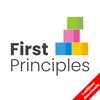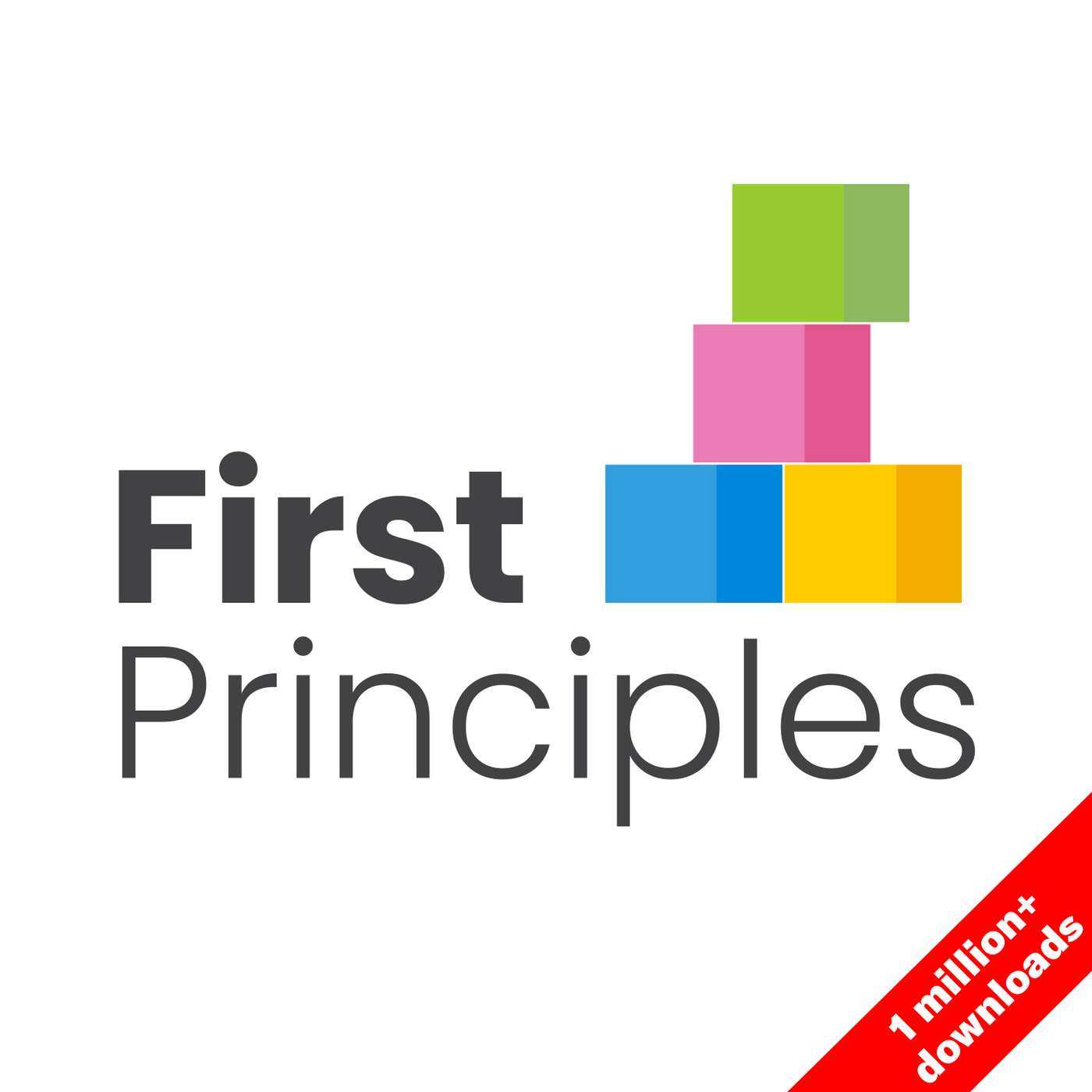

First Principles
The Ken
First Principles is a weekly interview podcast comprising authentic, candid, and insightful conversations between some of India’s most accomplished founders and business leaders, and Rohin Dharmakumar, The Ken’s CEO & co-founder.
From personal philosophies, mental models and decision making frameworks, to reading habits, parenting styles or personal interests, each episode will delve into what makes each of these leaders unique.
From personal philosophies, mental models and decision making frameworks, to reading habits, parenting styles or personal interests, each episode will delve into what makes each of these leaders unique.
Episodes
Mentioned books

4 snips
Jul 21, 2025 • 1h 16min
Part 1: Ultraviolette Automotive's Narayan Subramaniam on tinkering, designing and learning by discarding
Narayan Subramaniam, Co-founder and CEO of Ultraviolette Automotive, shares insights from his nine-year journey in Bangalore's automotive innovation landscape. He discusses the urgency of time in startups, emphasizing how resource constraints drive innovation. Narayan reflects on the origins of Ultraviolette, balancing academic pressures with a quest for originality in engineering. He navigates the challenges of securing funding, building a skilled team, and adapting battery technologies, painting a vivid picture of the evolving electric vehicle market and its future.

Jul 1, 2025 • 45min
Part 2: Manish Sabharwal of Teamlease on creating great ancestors, India’s development journey and ‘regulatory cholesterol’
Manish Sabharwal, Co-founder of Teamlease, discusses the misalignment of India's educational system with job market needs. He tackles the challenges of higher education funding and the importance of vocational training for economic growth. Manish shares insights on balancing his diverse roles across non-profits and businesses, highlighting the significance of self-discovery in personal growth. He also addresses the socio-economic dynamics in India, advocating for teamwork to rebuild trust and progress, alongside reflections on technology's role in societal change.

27 snips
Jun 24, 2025 • 1h 5min
Part 1: Manish Sabharwal of Teamlease on creating great ancestors, India’s development journey and ‘regulatory cholesterol’
Manish Sabharwal, Co-founder of Teamlease and expert on labor markets, shares insights on India's development journey. He discusses the importance of long-term thinking in creating a legacy and addresses challenges like wage stagnation and the transition from agriculture. Manish critiques bureaucratic hurdles and corruption, highlighting their impact on growth and AI's potential in society. He also emphasizes the undervaluation of care work and the need for economic reforms to foster innovation and entrepreneurial freedom in India.

31 snips
May 19, 2025 • 1h 6min
Part 2: Sahil Barua on why Delhivery is the antithesis of moving fast and breaking things
Sahil Barua, co-founder and CEO of Delhivery, shares insights into the evolving logistics landscape. He discusses the importance of thoughtful leadership over hasty decisions, emphasizing strategic coherence and team dynamics. The conversation dives into quick commerce in India and the challenges it presents. Sahil also reflects on personal growth through reading and the balancing act of entrepreneurship, revealing how friendships contribute to fulfillment in his professional journey. His take on reaching 40 offers a relatable perspective on life and career.

28 snips
May 12, 2025 • 1h 13min
Part 1: Sahil Barua on why Delhivery is the antithesis of moving fast and breaking things
Sahil Barua, the Co-founder and CEO of Delhivery, shares insights into the logistics industry and his company's unique approach. He discusses the complexities of Indian logistics, emphasizing sustainability and decentralized management. Sahil reflects on stepping away from impulsiveness, opting for direct communication over social media, and the importance of being open to 'happy accidents' in life. He also explores innovative strategies, including transitioning from traditional models to dynamic mesh networks, positioning Delhivery for future challenges and opportunities.

5 snips
Apr 21, 2025 • 40min
Part 2: Vidit Aatrey on building a problem-first mindset into Meesho's culture
Vidit Aatrey, co-founder and CEO of Meesho, shares insights on building a problem-first mindset in company culture. He discusses his middle-class upbringing and its impact on his work ethic. Vidit emphasizes a unique hiring approach that aligns with the company's mission and the importance of staying customer-focused through initiatives like DICE visits. He delves into the significance of curiosity in leadership and how personal experiences shape his decision-making. Plus, he shares his favorite book recommendations for aspiring entrepreneurs!

27 snips
Apr 14, 2025 • 1h 32min
Part 1: Vidit Aatrey on building a problem-first mindset into Meesho's culture
I met Vidit Aatrey, Co-founder and CEO of Meesho, on 14th February, exactly two months ago. We met at Spacebot Studios in Indiranagar. Vidit is tall, lean and clean-shaven. He is a careful listener and a measured speaker. When you ask him a question, you get the sense he’s spending time parsing all its meanings, and then playing out a few versions of responses in his head, perhaps doing a little bit of editing, before replying. Of course, all of this happens in a few seconds, so it’s easy to miss unless you are, well, having a conversation with him for over two hours. That’s enough time for both of us to pick and read cues from each other.Think about it. Can you spend two hours in a room having a truly open-ended, candid and widespread discussion with another person about their life, their business, their colleagues, their company and its culture, and even their family, without getting to really know them?I’d been wanting to have Vidit as a guest on First Principles for a while, even during our first two seasons. But as it turns out, things clicked only in 2025. I’m glad though, because I do feel Vidit’s and Meesho’s journey are a wonderful opening to Season 3 of First Principles.There’s a lot of good stuff we talked about. Why Vidit is so eager for Meesho to build for a long-term view, why he values problems way more than solutions, the humility and willingness to be led to new places by customer insights, the much talked about zero commission model, and building products for users who aren’t the top 5% of India.Let’s get started with the conversation, shall we?Welcome to season three of First Principles.-If you're a premium subscriber of The Ken. You can listen to the full conversation with Vidit Aatrey right now using this link.Write to us fp@the-ken.com with your feedback, suggestions and guests you would want to see on First Principles.

Jul 18, 2024 • 8min
Introducing Two by Two, a new premium business podcast from The Ken
A new premium business podcast, Two by Two, delves into the rivalry between Flipkart and PhonePe, exploring their moves in FinTech and grocery delivery. Hosts Rohin Dharmakumar and Praveen Gopal Krishnan invite guests to dissect the conflict in a 2x2 matrix format, highlighting winners, losers, and future trajectories.

Jul 11, 2024 • 1h 29min
The Final Supercut Part 2: Founders 21-41
Hello, we're back again with part 2 of our final, final supercut where we’ve spliced together one interesting bit of conversation from the last 21 guests I interviewed on First Principles. And like the last episode where we covered founders 1 to 20, you’ll hear super sharp slices of a few minutes each which are reflections on their approach to organization building, risk taking, decision making and life living.Here are the guests you’ll get listen to in this episode: Krish Subramanian, co-founder and CEO of Chargebee; Varun Dua, founder of Acko; Yashish Dahiya, co-founder and Group CEO of Policybazaar; Archit Gupta, co-founder and CEO of Clear; M N Srinivasu, co-founder and Director of Billdesk; Radhika Gupta, MD and CEO of Edelweiss Asset Management; Lalit Keshre, co-founder and CEO of Groww; Niraj Singh, founder and CEO of Spinny; Karthik Jayaraman, Managing Director of Waycool; Ritesh Agarwal, founder and CEO of Oyo; Soumya Rajan, founder and CEO of Waterfield Advisors; Viren Shetty, Executive Vice Chairman of Narayana Health; Aneesh Reddy, Founder and MD of Capillary Technologies; Vaibhav Gupta, co-founder and CEO of Udaan; Girish Mathrubootham, Founder and Executive Chairman of Freshworks; Harsh Mariwala, Chairman of Marico; Chetan Maini, co-founder and chairman of SUN Mobility; Jaydeep Barman, co-founder and CEO of Rebel Foods; Alok Mittal, co-founder and MD of Indifi Technologies; Kapil Chopra, Founder of The Postcard Hotels; and Manav Garg, founder of Eka.This is not the end of the road for me as a podcast host as you’ll soon find out. Actually, very soon. I'm Rohin Dharmakumar, your host. And here's part 2 of the final, final supercut.------Also, if you haven't already, do subscribe to the First Principles newsletter. You can sign up for free here!

Jul 4, 2024 • 1h 25min
The Final Supercut Part 1: Founders 1-20
Entrepreneur and founder Kabeer shares insights on entrepreneurship, leadership, and life in a collection of snippets from the first 20 podcast episodes. Topics include feedback loops, instinctive decision-making, risk vs. reward, optimizing decision-making, financial management, managing feedback in a tech company, and empowering employees through cultural values and entrepreneurial mindset.


